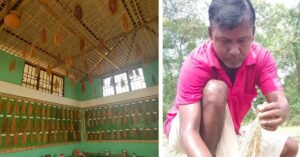‘How I Turned My College Project Into Assam’s 1st Biomedical Waste Plant’
Guwahati-based Partha Pathak launched the city’s first biomedical waste management company Fresh Air Waste Management Services Pvt Ltd that treats 2,000 kilos of waste a day and caters to multiple hospitals
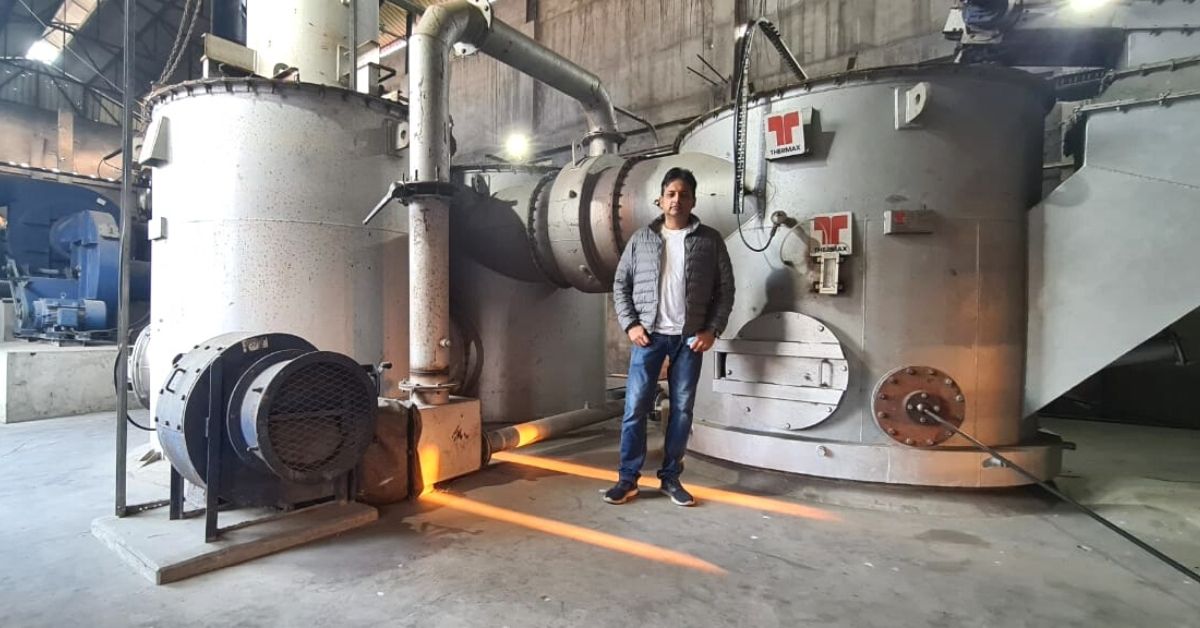
As an academic requirement, I took up a research project on different topics during my graduation and Masters programmes. But as soon as I passed the exams, I dumped my report. And here is an engineer from Guwahati in Assam who has converted his graduation project into a successful business that is helping keep the biomedical waste in the city at bay.
Partha Pathak, founder of Fresh Air Waste Management Services Pvt Ltd shares with The Better India how he implemented his academic knowledge into a business.
A Lesson For Life
“My first project was in 1993-1994 while studying a waste management disposal for Down Town hospital in the city with two other project partners. It was a 250-bed institution for which the team studied all the aspects of the waste management system,” he says.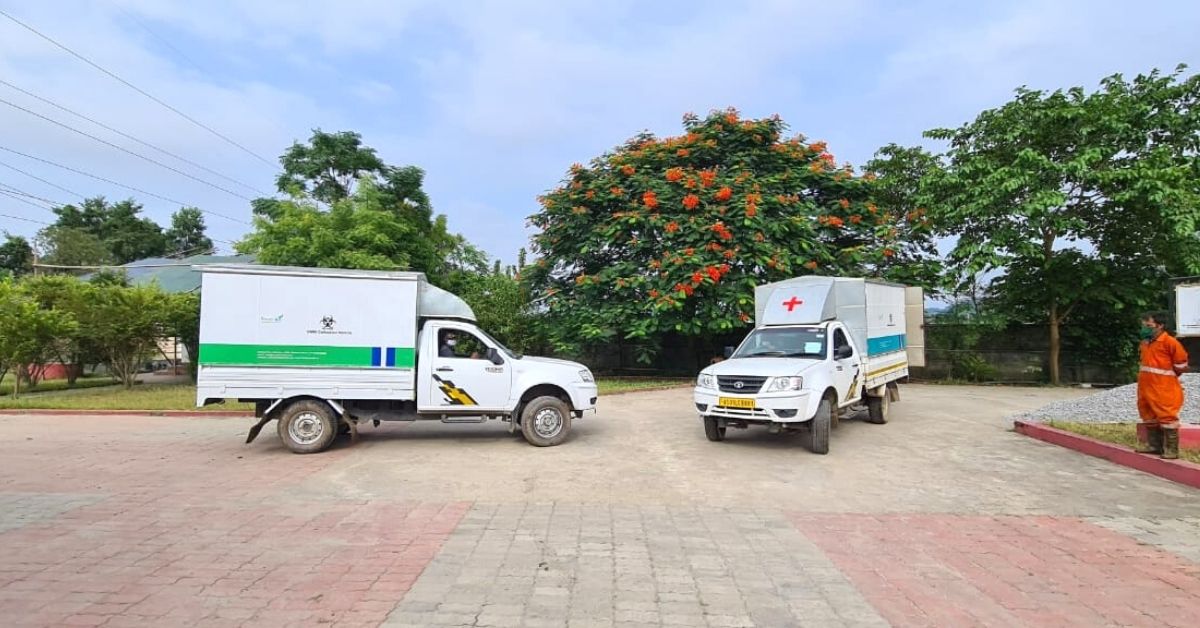
Partha explains there were no rules for biomedical waste management back then. “The waste was disposed of crudely, and there was no robust system to address the biomedical waste specifically. I compiled the report with my observations. But instead of treating it as one-off project work, I dived deeper into the work,” he says.
The 47-year-old says he visited the hospital multiple times to observe and gather data. “As biomedical waste was a major issue, I studied it in detail and the challenges faced in addressing and its disposal. There was no heavy waste load during those days but it required better management. The private hospital was doing a commendable job with it despite no government rules in place,” he adds.
Partha says the first rule came in 1995 where the central government laid guidelines on treating biomedical waste.
In 1996, he bagged a job in Mumbai in an oil sector company where he worked for five years. Soon, Partha was exhausted from the mundane job.
“I was not enjoying it anymore and wanted to pursue a business of my own,” he says.
It was then that Partha returned to Guwahati and found a job as a project engineer at a private hospital, performing various responsibilities. “I was doing a job similar to my academic studies in the waste management system,” he shares, adding, “But in 2003, I decided to quit my job and immerse myself into biomedical waste and wastewater management to launch the first company in Assam to address the issue.”
Partha notes that Guwahati did not have an efficient waste management system during those days. “Being located at a higher geographical altitude, the city’s waste disposal system was not at par with other low-lying metro cities like Mumbai. The city had its waste management system in place during the 1990s because of the massive waste generated in the city. With my experiences and observations from living in a metro city, I anticipated that my hometown would grow in the coming years and require an efficient waste management system. I began working on it, but kept the focus on the biomedical waste,” he says.
He adds the city’s biomedical waste management system was already becoming cumbersome, and he decided to introduce some measures for effective waste disposal.
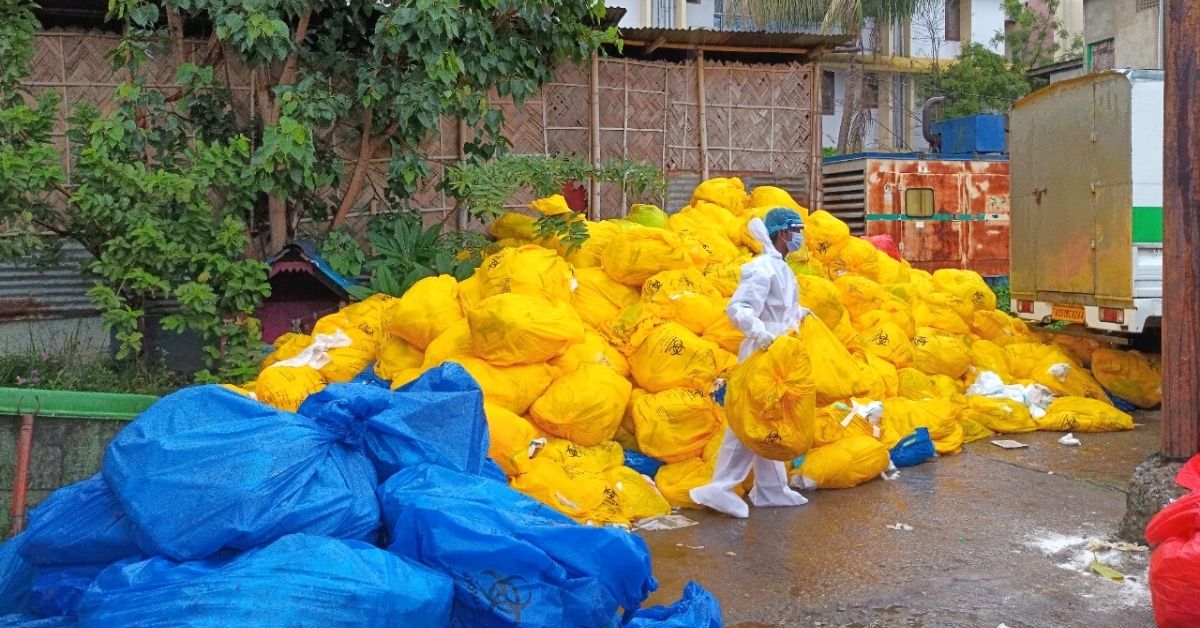
“Earlier, the hospitals were managing their biomedical waste. As per the 1995 norms, the medical institutions were required to set up a biomedical waste disposal unit on their premises. However, the main priority of the hospital is always to treat patients and managing its waste is secondary. Also, the hospitals could not afford to spend money for the heavy investments required to set up a waste management unit,” he says.
Moreover, it would require assigning separate staff, training and managing them. The overall model only added to the operational expenses. The smaller hospitals could not have a dedicated unit as the cost of the biomedical waste unit was high, making the overall proposition unfeasible.
Identifying the problem, Partha decided to offer a common system of setting up an incinerator. “It was an entirely new concept, and I found it challenging to procure loans. There was no proven or existing model to present to the bank. A service to dispose of the waste came as a surprise to the bank officials,” he says.
To Climb A Mountain
After much struggle, Partha borrowed a loan from a private bank and financial organisations. But the next challenge lied in convincing the hospital management.
“The hospitals already had a system in place, and outsourcing the services was not a welcoming change as it entailed additional costs. But I kept trying. On one occasion, a crow took a piece of exposed biomedical waste from a bin and flew away. The incident came as an awakening as the waste could harm or pollute the environment in multiple ways. The concerned hospital agreed, and I shared the same example with other medical institutions convincing them to sign up for the services,” he says.
Partha says his ordeal did not end here. “I started facing difficulty finding the staff as they were untrained or prepared for the job. For over a month, I drove and collected the biomedical waste from hospitals without any help. Many friends and family members started questioning my decision. They considered it inferior and even called me crazy. Some close friends suggested searching for government jobs. Eventually, they understood my unique contribution. The government officials also took cognisance of my work after I started delivering lectures on waste management to create awareness about the topic in colleges. By 2005, the situation settled, and I became confident and succeeded in bagging work for managing biomedical waste,” he says.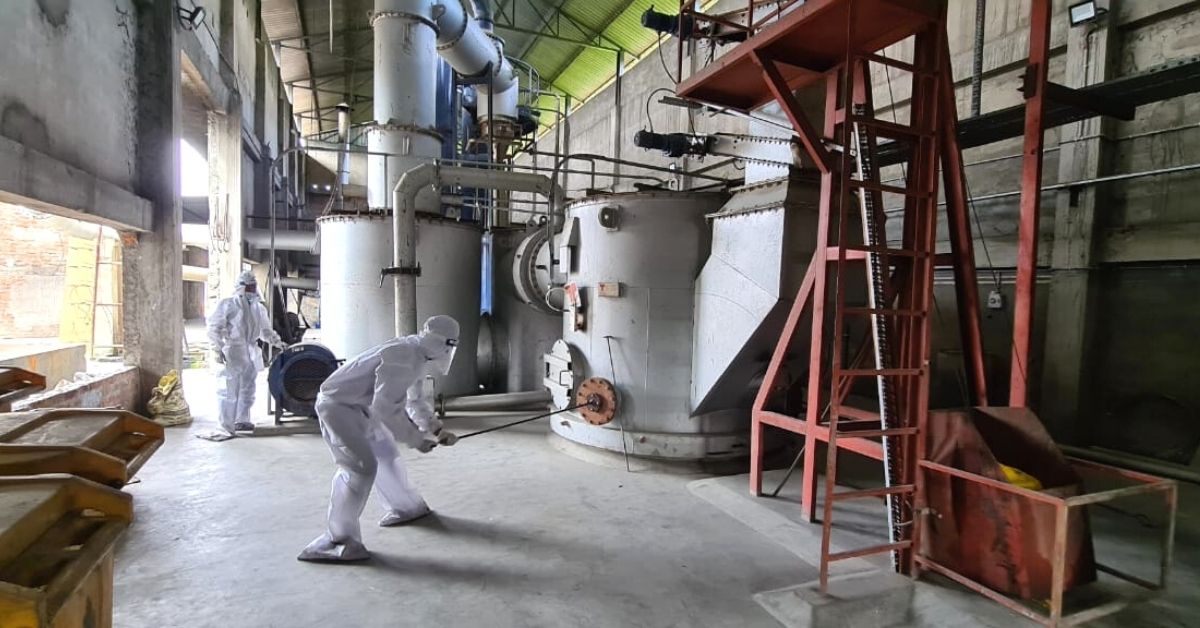
Today his company treats 2,000 kilos of waste a day, catering to multiple hospitals within a 150 km radius. It is also the largest facility in Assam. “I purchased a lot of equipment as backup and with improved capacity over the years. Sometimes, the machines break down, or some parts need repairs. In such cases, the work cannot stop and finding a replacement for a spare part may take days considering the long distances. So, I always kept myself more prepared than needed,” Partha says.
He adds, “The setup came useful during the COVID-19 pandemic. The plant functioned up to 60 per cent of the capacity treating almost 9,000 kilos of waste a day. I was glad that my investment proved useful for the city.”
Partha plans to enter into plastic waste management. “The plastic waste generated in the mountainous area of the country has increased multifold and needs an efficient system to prevent environmental pollution. I am working on setting up a unit soon,” he adds.
But for now, Partha relates his success with an experience of climbing a mountain. “A mountain looks beautiful from far. It becomes a treacherous journey once you start climbing from the foothills. But only after reaching the peak can you experience and admire the beauty of the view. My journey has been a similar experience,” he adds.
Edited by Yoshita Rao
This story made me
- 97
- 121
- 89
- 167
Tell Us More
We bring stories straight from the heart of India, to inspire millions and create a wave of impact. Our positive movement is growing bigger everyday, and we would love for you to join it.
Please contribute whatever you can, every little penny helps our team in bringing you more stories that support dreams and spread hope.






